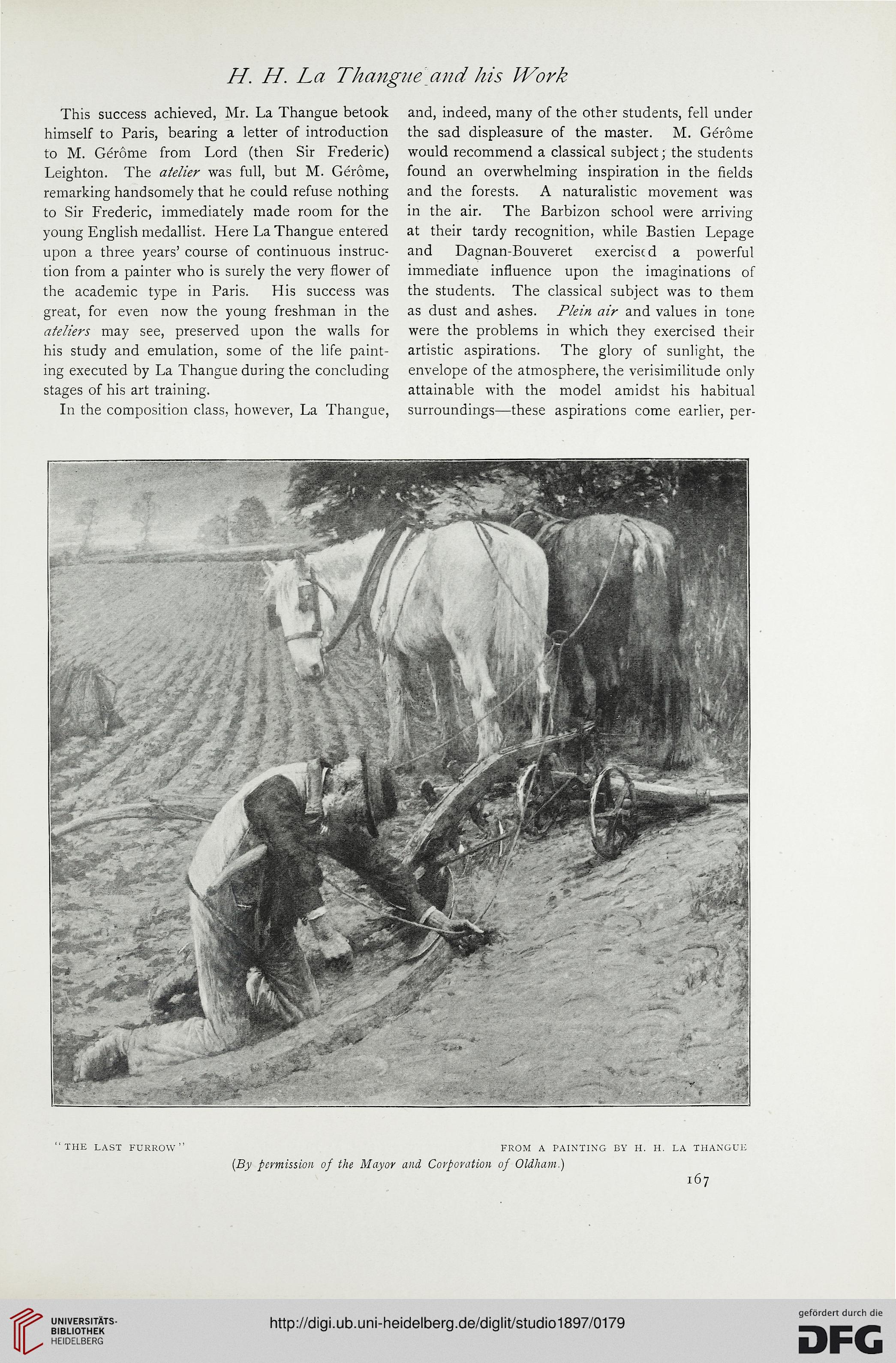H. H. La Thangue and his Work
This success achieved, Mr. La Thangue betook
himself to Paris, bearing a letter of introduction
to M. Gerome from Lord (then Sir Frederic)
Leighton. The atelier was full, but M. Gerome,
remarking handsomely that he could refuse nothing
to Sir Frederic, immediately made room for the
young English medallist. Here La Thangue entered
upon a three years' course of continuous instruc-
tion from a painter who is surely the very flower of
the academic type in Paris. His success was
great, for even now the young freshman in the
ateliers may see, preserved upon the walls for
his study and emulation, some of the life paint-
ing executed by La Thangue during the concluding
stages of his art training.
In the composition class, however, La Thangue,
and, indeed, many of the other students, fell under
the sad displeasure of the master. M. Gerome
would recommend a classical subject; the students
found an overwhelming inspiration in the fields
and the forests. A naturalistic movement was
in the air. The Barbizon school were arriving
at their tardy recognition, while Bastien Lepage
and Dagnan-Bouveret exercised a powerful
immediate influence upon the imaginations of
the students. The classical subject was to them
as dust and ashes. Pie in air and values in tone
were the problems in which they exercised their
artistic aspirations. The glory of sunlight, the
envelope of the atmosphere, the verisimilitude only
attainable with the model amidst his habitual
surroundings—these aspirations come earlier, per-
THE LAST FURROW" FROM A PAINTING BY H. H. LA THANGUE
(By permission of the Mayor and Corporation of Oldham.)
167
This success achieved, Mr. La Thangue betook
himself to Paris, bearing a letter of introduction
to M. Gerome from Lord (then Sir Frederic)
Leighton. The atelier was full, but M. Gerome,
remarking handsomely that he could refuse nothing
to Sir Frederic, immediately made room for the
young English medallist. Here La Thangue entered
upon a three years' course of continuous instruc-
tion from a painter who is surely the very flower of
the academic type in Paris. His success was
great, for even now the young freshman in the
ateliers may see, preserved upon the walls for
his study and emulation, some of the life paint-
ing executed by La Thangue during the concluding
stages of his art training.
In the composition class, however, La Thangue,
and, indeed, many of the other students, fell under
the sad displeasure of the master. M. Gerome
would recommend a classical subject; the students
found an overwhelming inspiration in the fields
and the forests. A naturalistic movement was
in the air. The Barbizon school were arriving
at their tardy recognition, while Bastien Lepage
and Dagnan-Bouveret exercised a powerful
immediate influence upon the imaginations of
the students. The classical subject was to them
as dust and ashes. Pie in air and values in tone
were the problems in which they exercised their
artistic aspirations. The glory of sunlight, the
envelope of the atmosphere, the verisimilitude only
attainable with the model amidst his habitual
surroundings—these aspirations come earlier, per-
THE LAST FURROW" FROM A PAINTING BY H. H. LA THANGUE
(By permission of the Mayor and Corporation of Oldham.)
167




